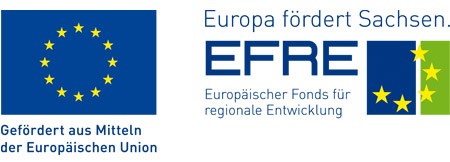Development of a new diagnostic platform for improved cancer diagnostics
The company ApoCell Europe GmbH is working in cooperation with the Fraunhofer IZI to develop a promising technology which will isolate circulating tumor cells (CTCs) found in blood to demonstrate potential clinical utility of CTCs as a minimally invasive means for predictive and diagnostic applications for cancer patients.

CTCs have long been known to exist in cancer patients’ blood and clinical correlations have been established between CTC counts and disease progression. These circulating cells represent an attractive target for clinicians seeking to assess a patient’s disease state; however the clinical promise of using CTCs to select appropriate treatments and monitor effectiveness has yet to be fully realized. One reason is that CTCs are extremely rare and difficult to isolate using the commercially available technologies, many of which rely on antibodies that attach to specific cancer cell antigens such as EpCAM.
Standard tumor treatment often involves chemotherapeutics, which are associated with considerable side effects. However, around half of these treatments are ineffective. One reason for this is that tumor cells respond differently to the various types of treatment. By capturing CTCs in a viable state, different treatment therapies can be tested in vitro to determine which therapies would be most effective thereby enabling a means of developing personalized cancer treatment therapies.
With its ApoStream® technology, the company ApoCell, Inc. has developed an innovative and promising way of isolating circulating tumor cells which notably is antibody independent. ApoStream® utilizes a process known as dielectrophoresis (DEP) in a continuous flow process. The technology employs a non-uniform electrical field at specific frequencies to separate viable cancer cells from normal blood cells by relying on a cancer cell’s unique form and structure, rather than cell surface antigen expression. ApoStream® has been shown to detect significant quantities of intact CTCs from a wide range of cancer types, enabling more robust downstream analysis for greater understanding of each patient’s disease. The advantage of this method over the more conventional isolation procedures is that the cells remain unmodified and are thus perfectly suited for subsequent analyses and tumor characterization. Together with the Fraunhofer IZI, the ApoStream® technology will be further developed into a marketready device for clinical research applications.
As part of the cooperation project, ApoCell will continue to develop the device, optimize technical parameters and ease of operation, and increase the procedure's efficiency. "We are planning to initiate regulatory filing as a class I medical device with the FDA in early 2014 and anticipate a clinical indication to be launched by 2016", commented Darren Davis, Managing Director of ApoCell Europe GmbH, on the aspirations of the project.
As part of the cooperation work, Fraunhofer IZI will provide various model systems and analytical procedures in order to test the effectiveness of the isolation method as well as to evaluate the significance of the circulating tumor cells. The respective cells are to be cultivated in the laboratory and thoroughly characterized both genetically and biochemically. In order to make circulating tumor cells available for prognoses and diagnoses for the purpose of personalized therapy, new biomarkers are to be identified by means of comprehensive genetic and biochemical analyses. "The technology is intended to help make therapy more effective and cost-efficient. To do this we first have to thoroughly exploit the diagnostic potential of the circulating tumor cells," said Professor Friedemann Horn, Head of the Department of Diagnostics at Fraunhofer IZI.
ApoCell Europe GmbH was founded in Leipzig in October 2012 as a subsidiary of the US company ApoCell, Inc. in an effort to support its global customer base for clinical trial biomarker services being conducted in Europe and surrounding countries. The project valued at a total of around 4 million euros is being funded through the Sächsische Aufbaubank (Saxon Development Bank) with a total of 3 million euros coming from the European Regional Development Fund (ERDF) and also from the Free State of Saxony.
"We are extremely pleased that we have been able to bring on board ApoCell, Inc. – another well-known, international partner – to invest in the biotechnology region of Saxony", said Dr. Thomas Tradler, Head of Business Development at Fraunhofer IZI.